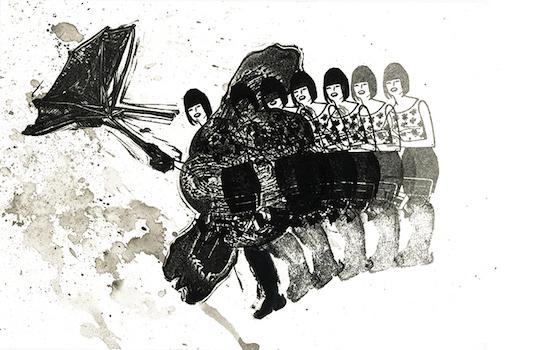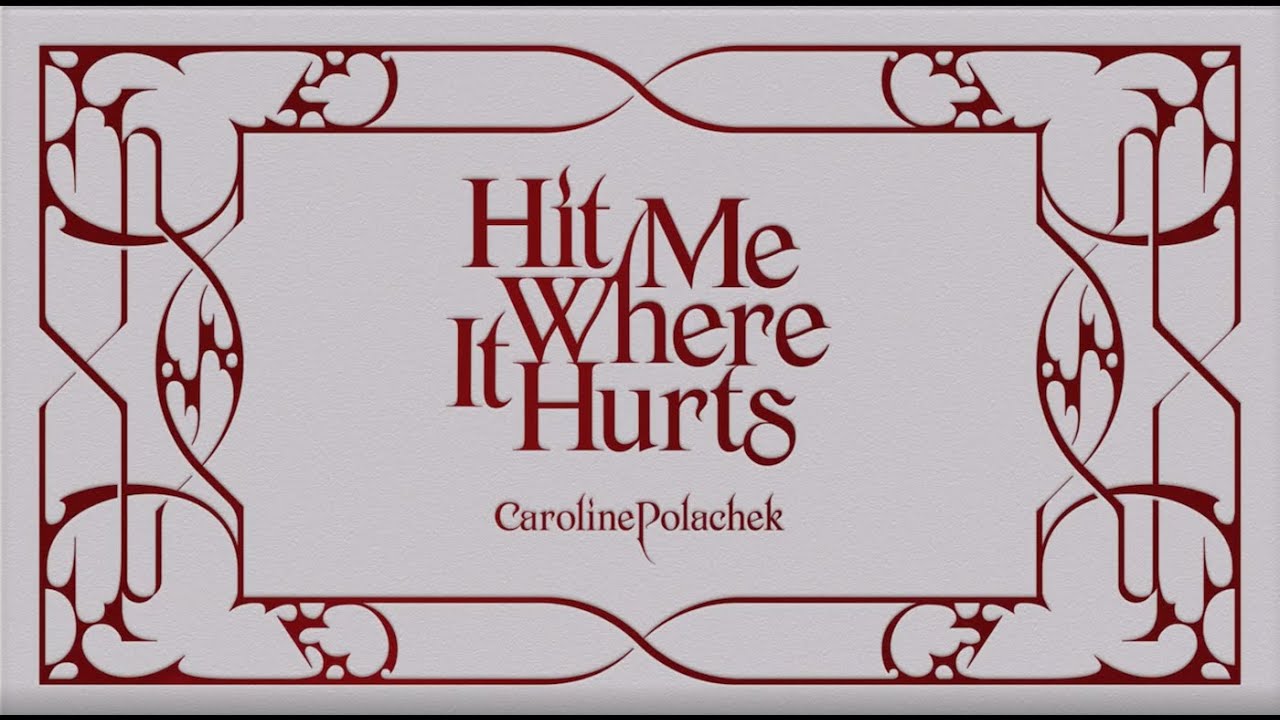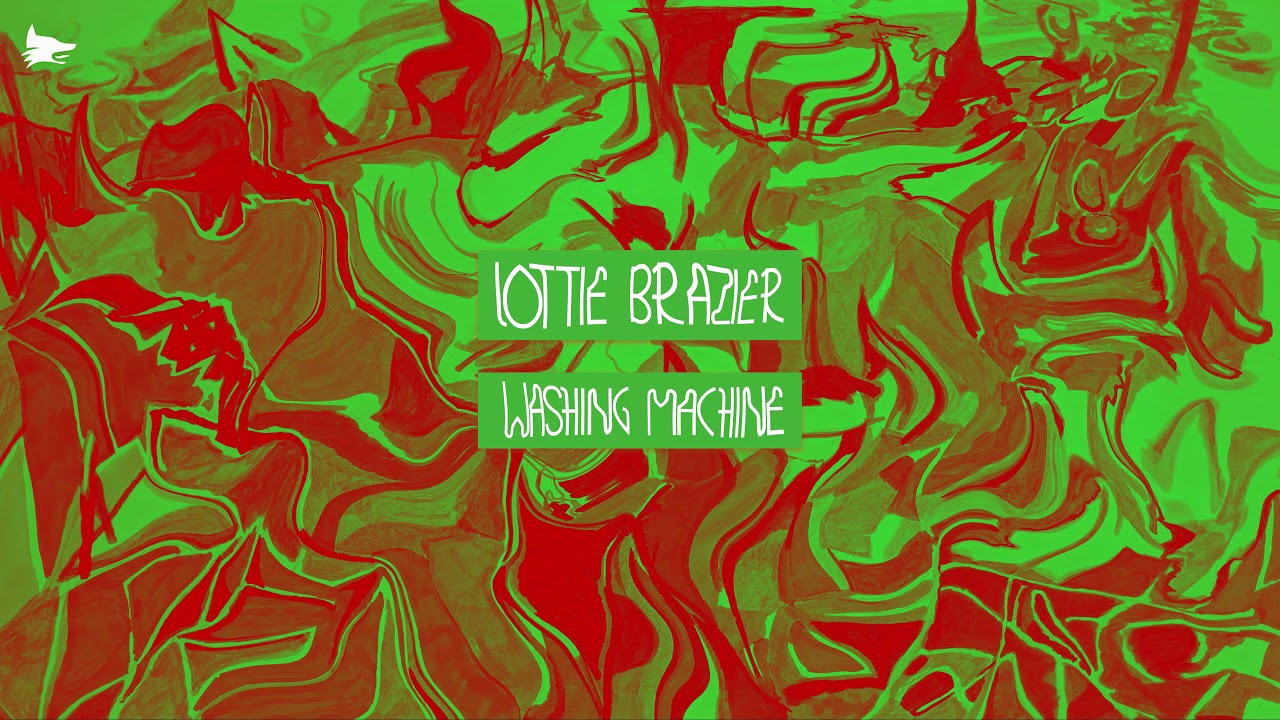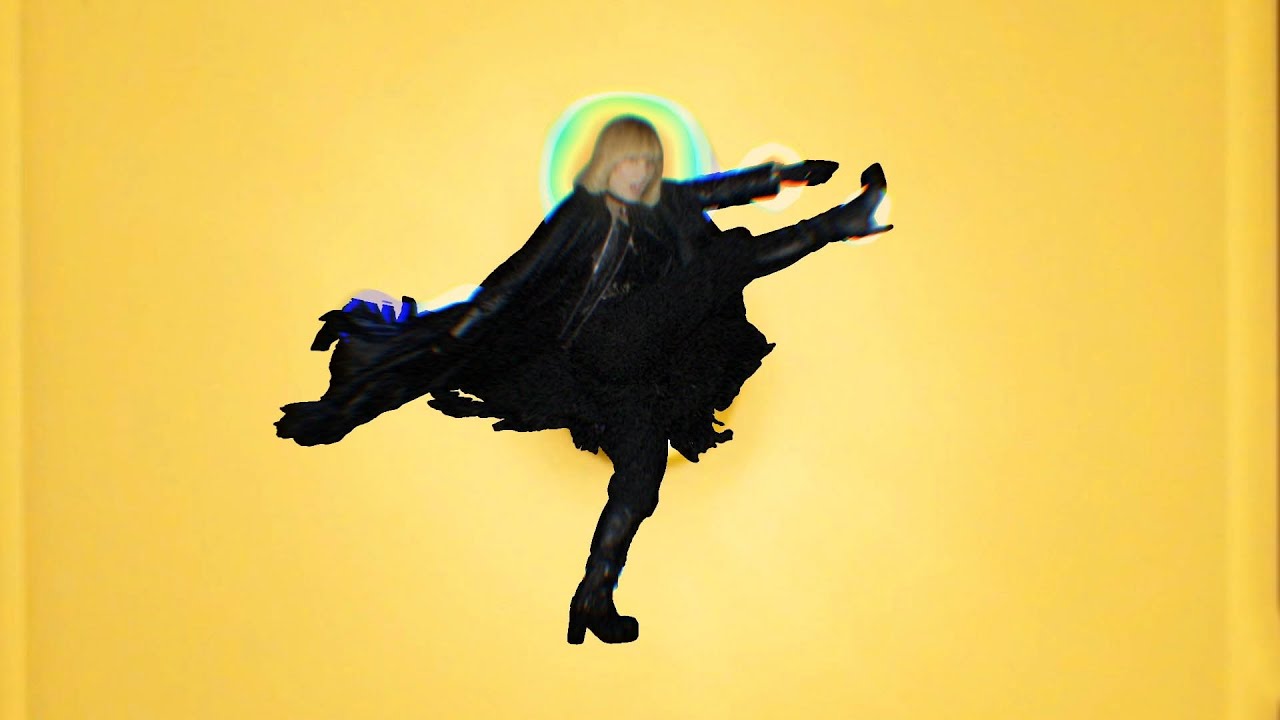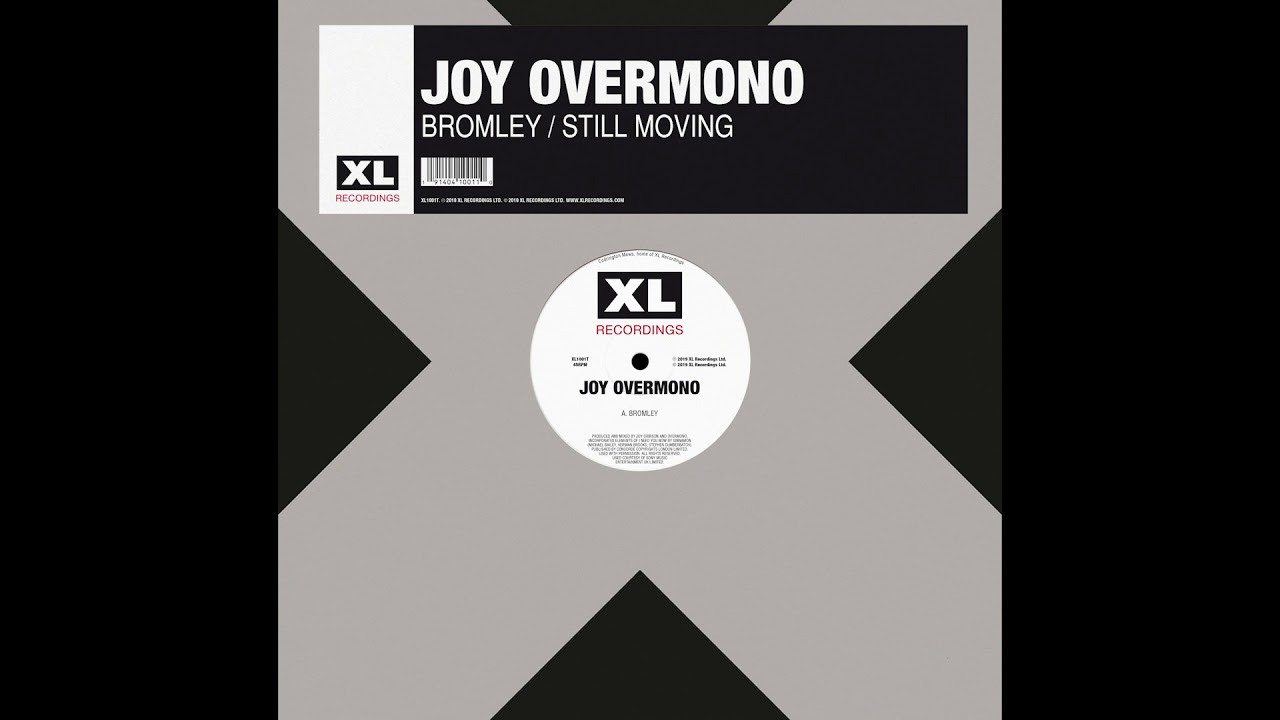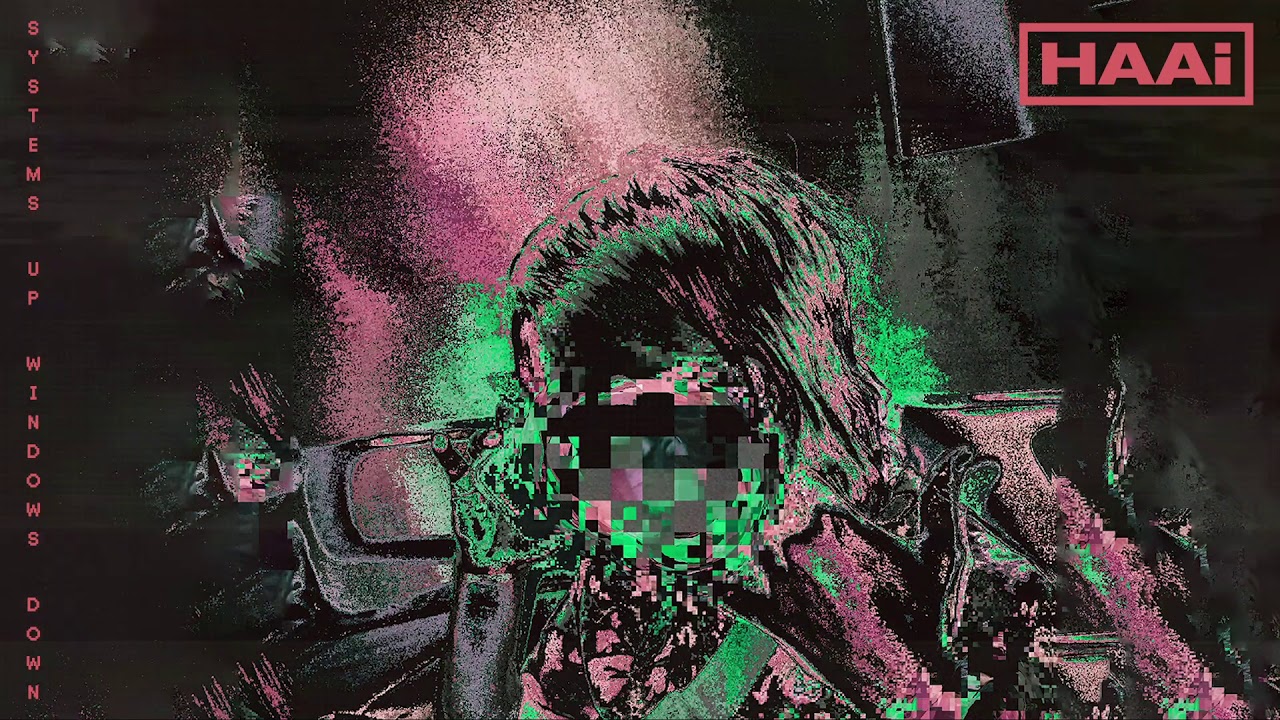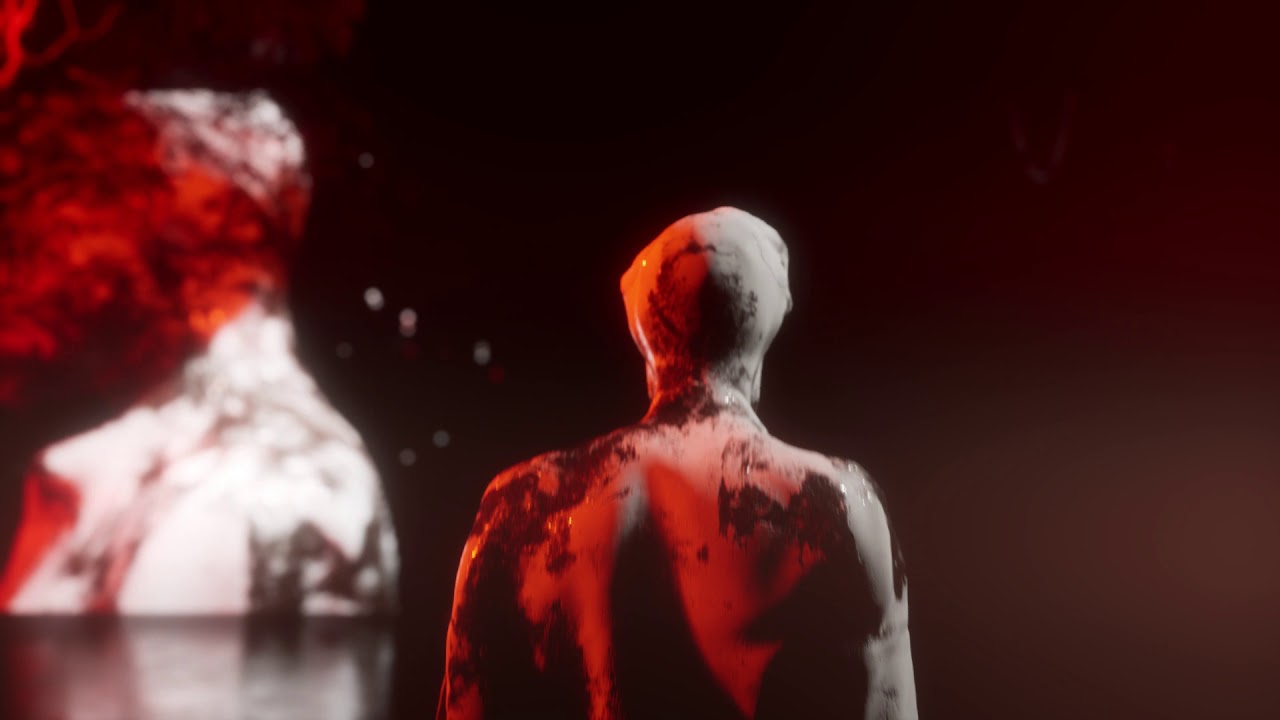‘Wet Centipede Of Woman (November)’ by Lisa Cradduck
The end of the year is almost upon us, which means it’s nearly time for list season.
Starting this Monday, tQ will be bringing you a series of round-ups of all of our favourite music from 2019. It kicks off as ever with our look back at 100 of the year’s best albums before we move on to looking back over the reissues, mixes, compilations and all-important "etc" that was a hit in tQ’s office over the last 12 months the following week. We’ll also take stock of our favourite tracks in 2019 a little later in December.
Before that though, we’ve got the final monthly round-up for the year of our favourite albums, EPs and tracks. Featured below, you’ve got the guttural, heavily politicised delivery of Moor Mother on her latest record, hard-edged no-nonsense techno from Karenn and Giant Swan, a look at the beauty of the suburbs from William Doyle and the long-awaited second LP from FKA twigs.
There’s all of that and much more to dig into, as picked this month by Robert Barry, Patrick Clarke, John Doran, Ella Kemp, Luke Turner and myself, Christian Eede.
Albums Of The Month
Moor Mother – Analog Fluids of Sonic Black Holes
(Don Giovanni)
The mixing of sonic and material temporalities, and of the personal and historical by Moor Mother in Analog Fluids of Sonic Black Holes creates a form of aesthetic time travel, where time is not an endless loop but rather a Möbius strip. There are returns to the apocalypses of the past of slavery and genocide, but these returns are twisted, re-routed. New myths are generated and weaved into the structure, thereby changing how the present is seen and creating quantum speculative futures. A myriad of possibilities erupt and break free from the dystopian capitalist norms of white supremacy. Bob Cluness – read the full review here
FKA twigs – MAGDALENE
(Young Turks)
FKA twigs’ music has always embodied the complexities of human sexuality. On earlier records, twigs framed eroticism as a tangled web of desire and repulsion, recklessness and anxiety, and tension and release. But by personalising the thematic content of MAGDALENE, she is able to wax lyrical on the productive forces that flow through sexuality and that sexuality flows through. Twigs still finds ferocious power in her music, her femininity, and her sexuality. But on MAGDALENE, she tempers that ferocity with a radical sensitivity and vulnerability that indicate a broader maturation in her artistic development. Adam Lehrer – read the full review here
Karenn – Grapefruit Regret
(Voam)
Recorded over the course of an "intense studio session" in Berlin over the summer, Blawan and Pariah’s debut album as Karenn is one of the year’s finest techno records, not least because it shuns the kind of po-faced conceptualism that so many albums of its kind can get lost in. Instead, the pair come good with eight direct, thumping modular techno cuts. ‘Strawbs’ is a snarling speedy slice of techno at 150 BPM while at the opposite end of the spectrum, you have the chugging 115 BPM grit of ‘Cloy’. Amongst them is the hefty disarray of lead track ‘Crush The Mushrooms’ and the more pensive thud of closer ‘Taste Yourself’. Christian Eede
Giant Swan – Giant Swan
(Keck)
You could call this kind of music ‘industrial’, but I don’t really believe Giant Swan have ever been anywhere near the kind of heavy industry that once inspired Shostakovich’s Second Symphony or the steel city tape music of Cabaret Voltaire. Their debut album is the migraine you didn’t know you needed. It is every sweaty, gurning night. Bright white lights in motion, glinting through dry ice off bare skin and exposed concrete. A gleaming, multi-faceted crystal made of muck and broken glass. Robert Barry – read the full review here
Blood Incantation – Hidden History of the Human Race
(Dark Descent)
Whilst the band have never tried to hide their admiration for classic acts like Morbid Angel et al, what’s remarkable about Hidden History of the Human Race is just how futuristic it all sounds. Rather than just shameless retro worship, Blood Incantation have tapped into a truly timeless sound and are boldly taking it to places that no other band has dared to before. It’s technical without ever being overly flashy, visceral without becoming exhausting and psychedelic without being gaudy or tacky. This is everything you could want from a follow-up to Starspawn, building on the band’s sound and experimenting with even proggier ideas whilst remaining true to everything that made us originally fall in love with them. Kez Whelan – read the full review here
John Chantler – Tomorrow is Too Late
(Room40)
Tomorrow is Too Late was commissioned by INA GRM to be performed at their 2018 festival. INA GRM is known for asking their performers to explore, and compose, with audacity and freedom. It explains why the two tracks here are so free. Throughout the album there are constant drones and pulses, but Chantler’s use of space and silence is the most impressive element of Tomorrow is Too Late. Instead of bombarding us with an unrelenting sea of electronic noises, Chantler instead uses the sound sparingly, like a painter who has a limited amount of one colour and uses it to emphasise their point. Nick Roseblade – read the full review here
William Doyle – Your Wilderness Revisited
(William Doyle)
In a sense, this record aims for the noblest and most Proust-ian ambitions that an artwork can undertake. Proust believed that “habit” was the enemy of expression: “Most of our faculties lie dormant because they can rely upon Habit,” wrote Proust. “Which knows what there is to be done and has no need of their services.” Habit dulls our senses, Proust suggests, and stops us from appreciating common beauty. On Your Wilderness Revisited, Doyle sheds himself of the bad habits he developed as an emergent successful recording artist in East India Youth and takes on the role of the Proustian artist. He takes pleasure in and extrapolates beauty from the suburbs that raised him, and takes pains to share that beauty with us. Adam Lehrer – read the full review here
Michael Kiwanuka – Kiwanuka
(Polydor)
Right from opener ‘You Ain’t the Problem’, when the muffled opening bars blossom out into a glorious, Supremes-style call to action, and through to the brilliant orchestration on closer ‘Light’, there is a swagger and snap about the record. It’s filmic; a widescreen set of beautiful songs that, vitally, allows deeper investigations in terms of content and sound to be carried out elsewhere. There is a feeling throughout that on this release, Kiwanuka recognises that he has the power, and all the time in the world, to get things down on tape. Thus, a remorselessly confessional – and heart-stopping – ballad like ‘Piano Joint’ can live alongside a classic psych funk track like ‘Rolling’ and the bare-chested affirmative soul of ‘Hero’. Richard Foster – read the full review here
Whistling Arrow – Whistling Arrow
(God Unknown)
It’s tempting to describe this music as existing within the neighbourhoods of ‘folk’ in its various iterations, but ‘folk’ is a problematic term and this is not a folk record. Hayward’s playing might invoke Pentangle-style moments of jazz-folk-rock, but if you remove Cannell from the equation, you’d have a record that is more akin to free jazz or post-rock. It’s Cannell’s singular contribution amongst this group of art rockers that leads the listener down the path – albeit very overgrown – of tradition. Lara C. Cory – read the full review here
Shanti Celeste – Tangerine
(Peach Discs)
"When I made music for EPs, sometimes I felt restricted," Shanti Celeste has said of her past work. I would think too much about creating the moments on the dance floor I love." Using the freedom of a full-length album, Tangerine, her debut album, sees Celeste pushing beyond the summery house music and bright electro that has dominated her back catalogue to date. Those moments are still present in some of Celeste’s best club cuts to date (‘Want’, ‘Sesame’, ‘Infinitas’), but they’re surrounded by gorgeous explorations of new age and ambient music (‘Sun Notification’, ‘Moons’) that vitally serve a purpose as far more than filler in the context of the full LP. Christian Eede
Fovea Hex – The Salt Garden III
(Headphone Dust)
Fovea Hex, a loose collaborative group of Clodagh Simonds, Michael Begg, Colin Potter, Cora Venus Lunny and Kate Ellis, here mark the final part of their Salt Garden trilogy of records. It’s a rich and sumptuous listen, created from strings that drift like mist through yew branches in a time unplaceable, synth and organ drones that sit (like much great music) somewhere on the Enya continuum, and almost eccliastical chanting. As such, The Salt Garden III will appeal to fans of sonic esotericists like Coil, Hawthonn, or perhaps imagine Current 93 without the silly voices. Like the work of Laura Cannell or Alison Cotton, Fovea Hex are a group who evoke ancient folk sonics in a very contemporary fashion, away from the dubious fustiness of the tired Folk Horror etc aesthetic. Indeed, if Mike Oldfield’s underrated Hergest Ridge (on which Simonds was a vocalist) offered up an odd electronic take on the English pastoral, Fovea Hex does something similar here – the textures feel very modern. The Salt Garden trilogy might be complete, but there’s a cinematic feel to this work that you could imagine them soundtracking, say, a future Ben Wheatley adaptation of Ben Myers’ Gallows Pole. Luke Turner
Tracks Of The Month
Caroline Polachek – ‘Hit Me Where It Hurts’
Taking just a half-step back from the dizzy pop heights of ‘So Hot You’re Hurting My Feelings’, Caroline Polachek’s latest single is another lushly seductive earworm, somehow equally evocative of Carly Rae Jepsen and The Psychedelic Furs.
Beatrice Dillon – ‘Workaround Two’
One of the UK’s most inventive electronic music producers assembles a cast of musicians that includes Laurel Halo, Untold and Pharoah Sanders Band’s Jonny Lam for this breezy, freeform precursor to her debut LP, due early next year.
Lottie Brazier – ‘Washing Machine’
Mining the sonics of the classic 4AD groups, Lottie Brazier releases her first single, a shimmering beauty inspired by the writings of the great Ann Quin. Full disclosure: Lottie is a tQ contributor, but what of it? From years of obsessive study, our writers know how to put together a tune.
PREGOBLIN – ‘Anna (Flowers Won’t Grow)’
I know its our job to trade in the uncomfortable area where fact, opinion and hyperbole smash into done unstable broth but PREGOBLIN could just be the first great pop group of the 20s on the basis of their new single.
Roísín Murphy – ‘Narcissus’
Roísín Murphy channels Sheila B. Devotion and Chic on this, the second of two singles this year (so far unattached to any forthcoming album). Swirling and sophisticated, ecstatic and otherworldly, this song slaps.
Joy Overmono – ‘Bromley’
Having set track ID forums alight in recent months, that track from Ben UFO’s Dekmantel Boiler Room set over the summer finally arrives, marking the first collaborative material from Joy Orbison and Overmono.
HAAi – ‘Don’t Flatter Yourself, Love’
The problem with a lot of techno is its lack of humour and po-faced attempt to be ‘dark’. So I was instantly drawn to this track by Australia-via-London producer HAAi by its title, which follows that Downwards / BMB / Blacknecks tradition of naming things after what feels like scattered bits of conversation from sitcoms. This track from the new Mute signing has a solid build to proper mechanical techno that sounds like bits are dropping off, and is a great sign-poster to an excellent new EP for the label.
Jerskin Fendrix – ‘Black Hair’
Extremely odd and ever so slightly brilliant electropop from star in the making and Windmill regular.
Anastasia Kristensen – ‘AK OK’
Russia-via-Copenhagen producer and DJ Anastasia Kristensen debuts on fabric’s in-house Houndstooth label with this heads-down, peak-time banger.

